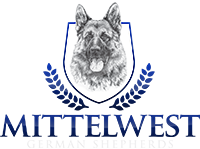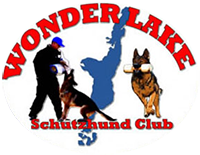Many devoted dog owners want to understand what to expect as their German Shepherd matures. Questions about when the breed reaches full size and emotional maturity are common, especially during the early months of rapid growth. Each stage brings new behaviors, health needs, and training opportunities that shape the dog’s future. Knowing when to consider a German Shepherd full grown helps families prepare for long-term care and develop strong routines. Today, you will learn clear insights to help you care for your German Shepherd through every phase of development.

The Growth Stages Of A German Shepherd
German Shepherds are a majestic breed, known for their intelligence, strength, and versatility. Their growth journey is a fascinating process, unfolding in distinct stages that shape their physical and mental maturity. Questions like ‘When is a German Shepherd considered full-grown?’ can arise, especially as owners try to gauge their dog’s development. Knowing these stages helps owners anticipate their dog’s needs and provide tailored care.
Puppyhood (0-6 Months)
The first six months of a German Shepherd’s life bring rapid physical and behavioral development. Bones grow quickly, muscles begin forming, and energy levels are high. During this stage, a balanced diet designed for large-breed puppies is essential to support healthy growth and joint development. Regular veterinary checkups help monitor progress and catch any early health concerns.
This is also a key period for shaping behavior. German Shepherd puppies are highly impressionable and benefit from early training and socialization. Introducing them to various people, animals, and environments helps build confidence and prevents fear-based behaviors later in life. The habits and lessons learned during this stage play a major role in shaping a well-adjusted adult German Shepherd.
Adolescence (6-18 Months)
The adolescent stage marks a shift from rapid puppy growth to more gradual physical and mental development. German Shepherds continue to grow in height and weight, but at a slower pace. Their bones strengthen, and they begin to develop more muscle mass, giving them a fuller, more mature appearance. This is also when hormonal changes begin, which can influence behavior. It’s a transitional phase that requires patience and consistency.
Behaviorally, adolescent German Shepherds may become more independent and occasionally stubborn. Owners might notice boundary-testing or selective listening during training. Continued use of positive reinforcement and clear expectations helps guide them through this phase. In addition, providing regular exercise, such as long walks or interactive games, is essential for managing energy and preventing frustration.
Young Adulthood (18-24 Months)
By 18 to 24 months, most German Shepherds are nearing physical maturity. Their body structure is largely developed, with males typically reaching 24 to 26 inches in height and weighing between 65 and 90 pounds. Females usually stand between 22 and 24 inches and weigh 50 to 70 pounds. While growth in height slows, some dogs continue to build muscle and fill out during this time. This stage is when you can consider a German Shepherd full grown in size.
Mentally, they are still developing. Young adults may show traces of puppy-like behavior, such as bursts of playfulness or distraction. However, they also become more focused, responsive, and dependable. Ongoing training, interactive toys, and activities like obedience classes help reinforce discipline and deepen the dog’s connection with the family. Consistent engagement during this phase shapes a confident, well-rounded adult German Shepherd.
The growth stages of a German Shepherd reveal how much time, care, and guidance this breed needs to reach its full potential. Each phase plays a role in shaping the dog’s health, behavior, and bond with the family. Recognizing these stages allows owners to respond with patience, structure, and support. With the right approach, a full-grown German Shepherd becomes a loyal, stable, and intelligent companion who thrives at home and in everyday life.
Addressing Common Concerns About Growth
Many pet owners worry about whether their German Shepherd is growing at the right pace or receiving proper care. These concerns are common, especially among first-time owners unsure about what to expect during each stage of development. Questions around nutrition, behavior, and milestones can lead to stress and second-guessing. We aim to provide clarity by addressing these concerns with practical, reliable information. A clear understanding of common challenges helps reduce unnecessary worry.
Size & Growth Variations
One frequent concern involves size and growth. Some owners compare their German Shepherd to others and question whether the dog is too large or too small. Growth patterns vary based on genetics, gender, and overall health, so differences are not unusual. Regular veterinary checkups help track development and confirm that the dog is progressing as expected. This reassurance allows owners to focus on consistent care instead of guesswork.
Joint Health & Physical Strain
Joint health is another key concern, particularly during early growth. German Shepherds are prone to certain conditions like hip dysplasia, which can be worsened by overexertion. To support healthy joint development, high-impact activities such as jumping or long-distance running should be limited during this stage. Instead, controlled exercise and low-impact play are recommended. These adjustments help protect the dog’s mobility in the long term.
Behavioral Challenges During Adolescence
Behavioral challenges also tend to surface during adolescence. Increased independence, high energy, and moments of defiance are common during this phase. Consistent training, clear routines, and mental stimulation help guide the dog’s behavior in a positive direction. Activities like obedience practice, scent work, or puzzle-based games promote focus and reduce unwanted behaviors. With the right structure, owners can shape a well-mannered, confident adult dog.
Addressing growth-related concerns early makes a noticeable difference in a German Shepherd’s long-term health and behavior. From monitoring physical development to managing energy and guiding behavior, each step plays a role in shaping a stable, well-rounded dog. With awareness and consistent care, owners can support their German Shepherd through each stage of growth with confidence and clarity.
Practical Tips For Supporting Your Full-Grown German Shepherd
 Helping a German Shepherd grow into a strong, stable adult calls for consistent care across multiple areas. From exercise and nutrition to training and mental stimulation, each factor plays a role in shaping your dog’s physical and behavioral development. The following tips are designed to support healthy growth, reduce common risks, and promote long-term well-being. With the right approach, your dog can reach full maturity with confidence and strength.
Helping a German Shepherd grow into a strong, stable adult calls for consistent care across multiple areas. From exercise and nutrition to training and mental stimulation, each factor plays a role in shaping your dog’s physical and behavioral development. The following tips are designed to support healthy growth, reduce common risks, and promote long-term well-being. With the right approach, your dog can reach full maturity with confidence and strength.
- Provide a Balanced Diet: Choose high-quality food formulated for large breeds. Look for options rich in protein and calcium to support muscle growth and bone health. Consult a veterinarian to know the right portion sizes and feeding schedule.
- Encourage Moderate Exercise: Aim for daily activities like walks, playtime, or swimming. Avoid intense exercise until the dog is at least 18 months old to protect developing joints. Gradually increase activity as they approach physical maturity.
- Prioritize Training & Socialization: Start training early to build good habits. Use positive reinforcement to teach them commands and encourage calm behavior. Socialize your dog with other pets and people to foster emotional stability.
- Schedule Regular Vet Visits: Routine check-ups monitor growth progress and catch potential issues early. Discuss vaccinations, parasite prevention, and joint supplements to support long-term health.
- Offer Mental Stimulation: Provide puzzle toys, training sessions, or interactive games to keep your dog’s mind sharp. Mental engagement supports mental maturation and prevents boredom-related behaviors.
Supporting a German Shepherd’s growth involves attention to physical health, behavior, and emotional development. Balanced routines, early training, and regular monitoring allow your dog to mature into a stable, confident adult. Each of these strategies works together to build a strong foundation for long-term wellness. With the right care, your German Shepherd becomes not only a well-developed dog but also a trusted companion for years to come.
Why Trust Mittelwest German Shepherds?
At Mittelwest German Shepherds, we are passionate German Shepherd breeders dedicated to providing healthy, happy dogs. Our extensive knowledge of the breed allows us to offer personalized advice tailored to your unique needs. We understand that raising a German Shepherd can sometimes feel overwhelming, especially for first-time owners, but you’re never alone on this journey.
With the right care and guidance, your German Shepherd will grow into a loyal, confident, and well-rounded companion who will stand by your side for years to come. If you have questions or need personalized advice, we’re here to help. Contact us today to schedule a consultation or learn more about our services, and let’s work together to support your German Shepherd’s bright future.













